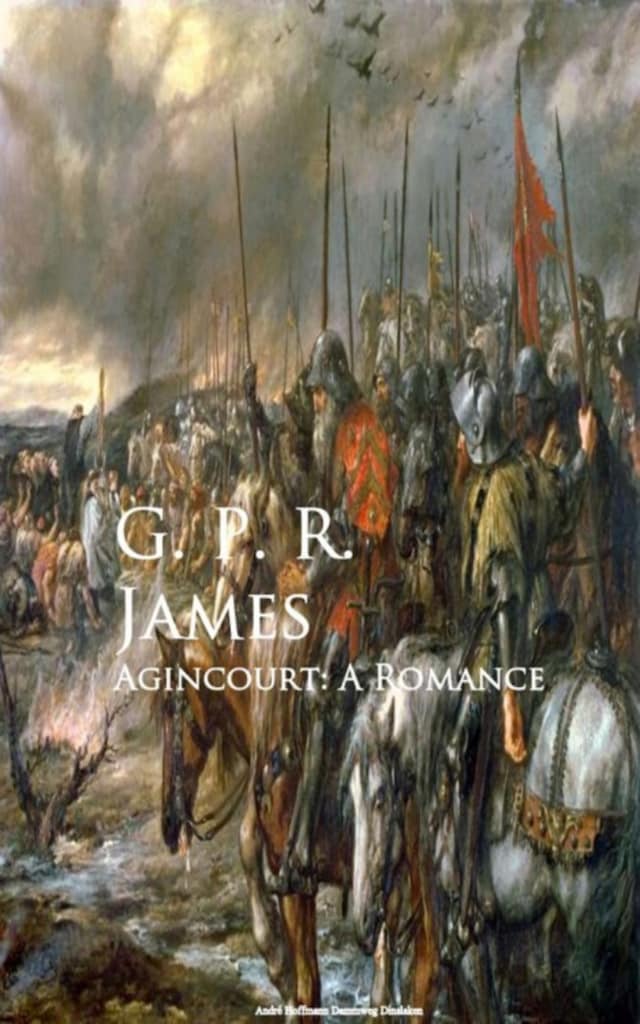
Agincourt: A Romance
Om bogen
The night was as black as ink; not a solitary twinkling star looked out through that wide expanse of shadow, which our great Poet has called the "blanket of the dark;" clouds covered the heaven; the moon had not risen to tinge them even with grey, and the sun had too long set to leave one faint streak of purple upon the edge of the western sky. Trees, houses, villages, fields, and gardens, all lay in one profound obscurity, and even the course of the high-road itself required eyes well-accustomed to night-travelling to be able to distinguish it, as it wandered on through a rich part of Hampshire, amidst alternate woods and meadows. Yet at that murky hour, a traveller on horseback rode forward upon his way, at an easy pace, and with a light heart, if one might judge by the snatches of homely ballads that broke from his lips as he trotted on. These might, indeed, afford a fallacious indication of what was going on within the breast, and in his case they did so; for habit is more our master than we know, and often rules our external demeanour, whenever the spirit is called to take council in the deep chambers within, showing upon the surface, without any effort on our part to hide our thoughts, a very different aspect from that of the mind's business at the moment.
Thus, then, the traveller who there rode along, saluting the ear of night with scraps of old songs, sung in a low, but melodious voice, was as thoughtful, if not as sad, as it was in his nature to be; but yet, as that nature was a cheerful one and all his habits were gay, no sooner were the eyes of the spirit called to the consideration of deeper things, than custom exercised her sway over the animal part, and he gave voice, as we have said, to the old ballads which had cheered his boyhood and his youth...
 G. P. R. James
G. P. R. James 582 Sider
582 Sider